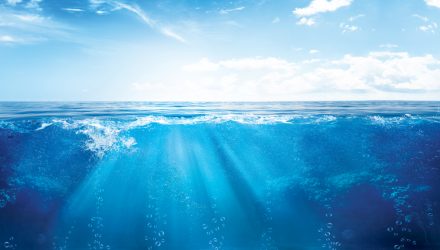In roulette, bettors wager on red or black. When it comes to investing, market participants focusing on sustainable investing usually bet on green. Thanks to evolution in the space, more advisors and investors are considering betting on blue.
The blue economy is a colloquial term for the ocean investing set, a concept accessible via a small number of exchange traded funds such as the new KraneShares Rockefeller Ocean Engagement ETF (KSEA).
The fund could be a prime example of a rookie ETF at the right place at the right time. It may be a fund that could be relevant to long-term investors seeking the benefits of sustainability.
Sustainable Investing ETF KSEA Supported by Attractive Fundamentals
Investors focusing on sustainability and ESG principles have recently heard more about the 17 United Nations Sustainable Development Goals. One of those 17 is “life under water.” Life under water has garnered the least amount of capital.
“But that could change with the recent UN agreement on the High Seas Treaty, a legal framework that creates protected maritime areas and sets 2030 targets to maintain the health and biodiversity of the oceans,” according to Morgan Stanley research.
The blue economy and life under water concepts currently aren’t well-represented throughout the fund universe. As Morgan Stanley noted, as of last year, just 500 equity-based funds had exposure in excess of 3% to life under water concepts. That’s a small number, as the combined ETF, index fund, and mutual fund landscapes number in the thousands.
Further boosting the long-term case for KSEA is the point that the blue economy is worth about $1.5 trillion. That number is forecast to double by the start of the next decade. That’s attractive, but there are associated complexities that could highlight the advantages of a strategy such as KSEA.
“Identifying key performance indicators for blue economy projects can be complex, and investors should monitor how standardization and metrics evolve. There’s no single metric to quantify impact toward ocean economy goals as there is for land-based projects that aim to reduce greenhouse gas emissions,” concluded Morgan Stanley.
For more news, information, and analysis, visit the Climate Insights Channel.

